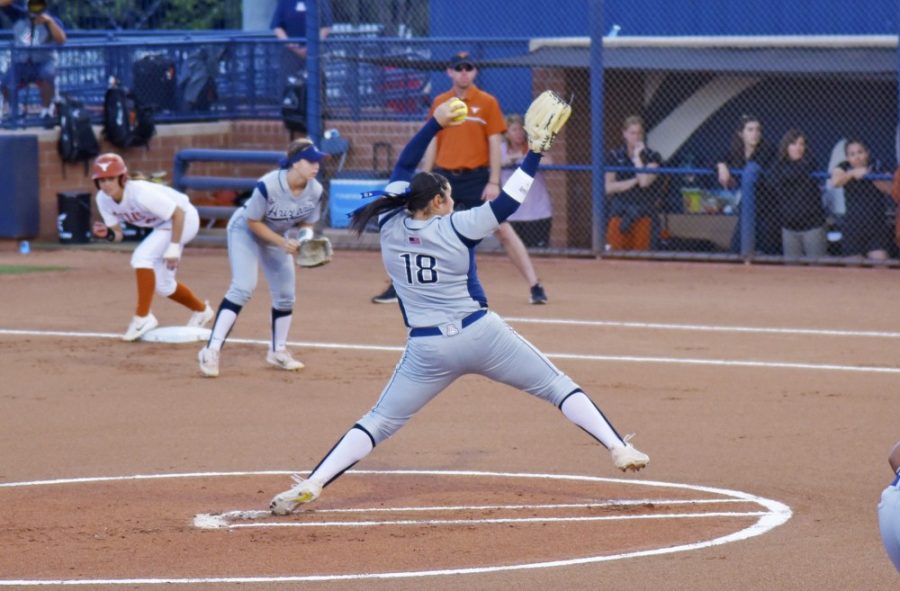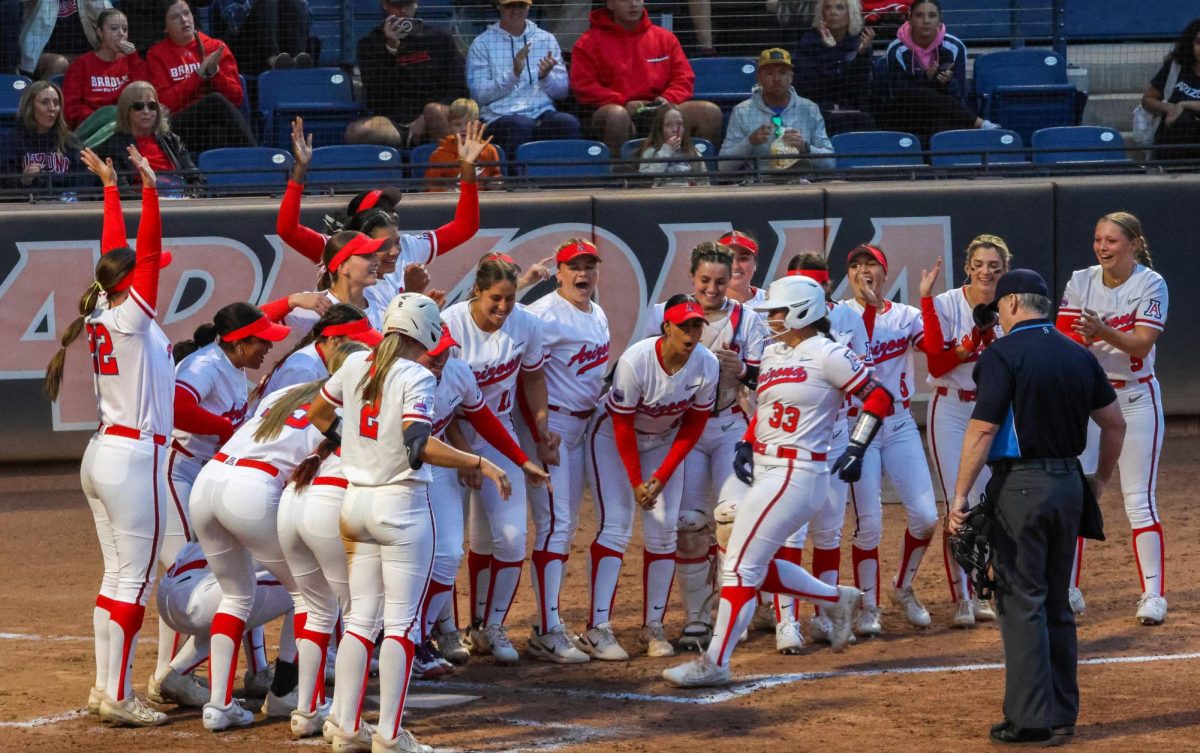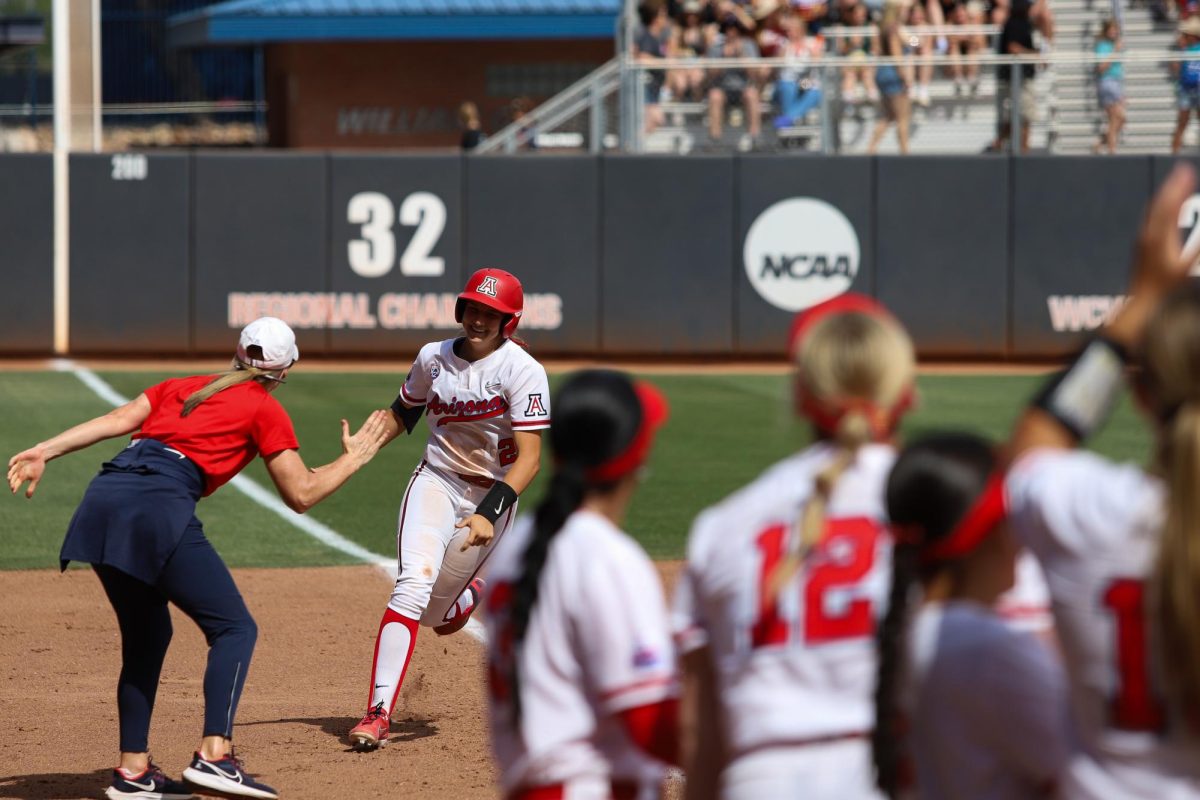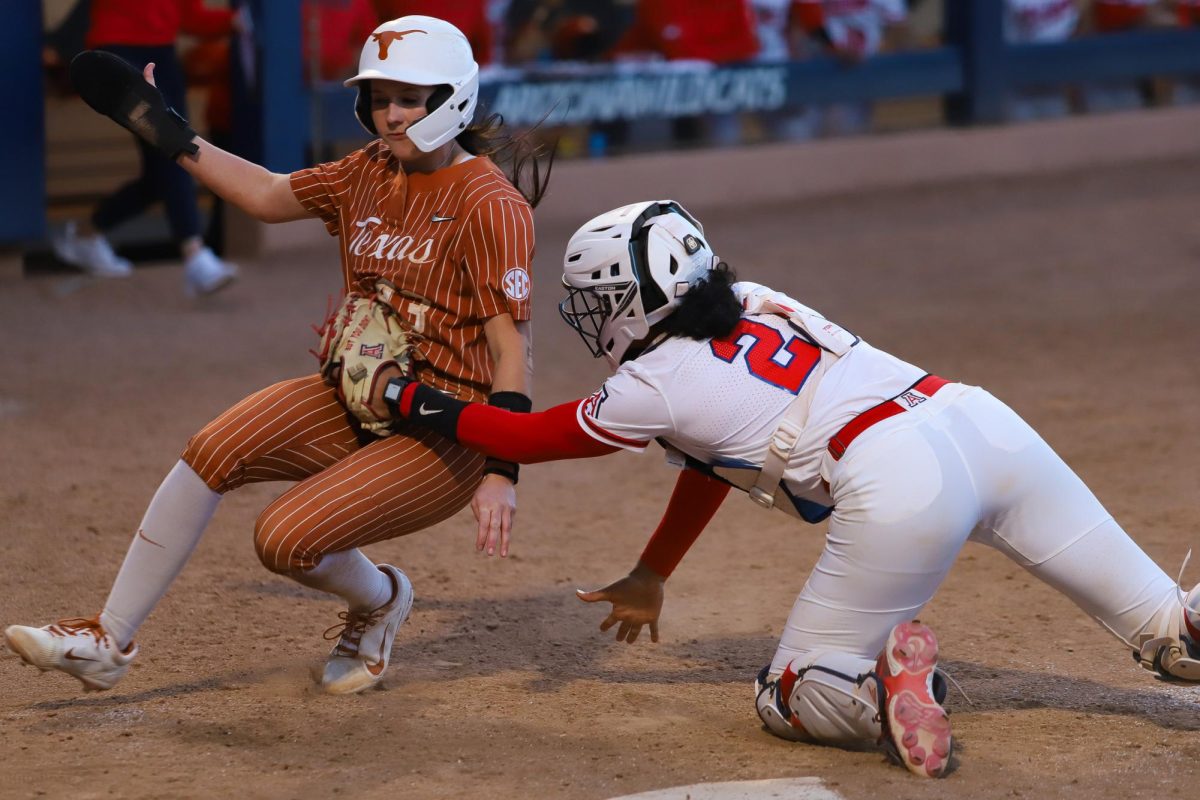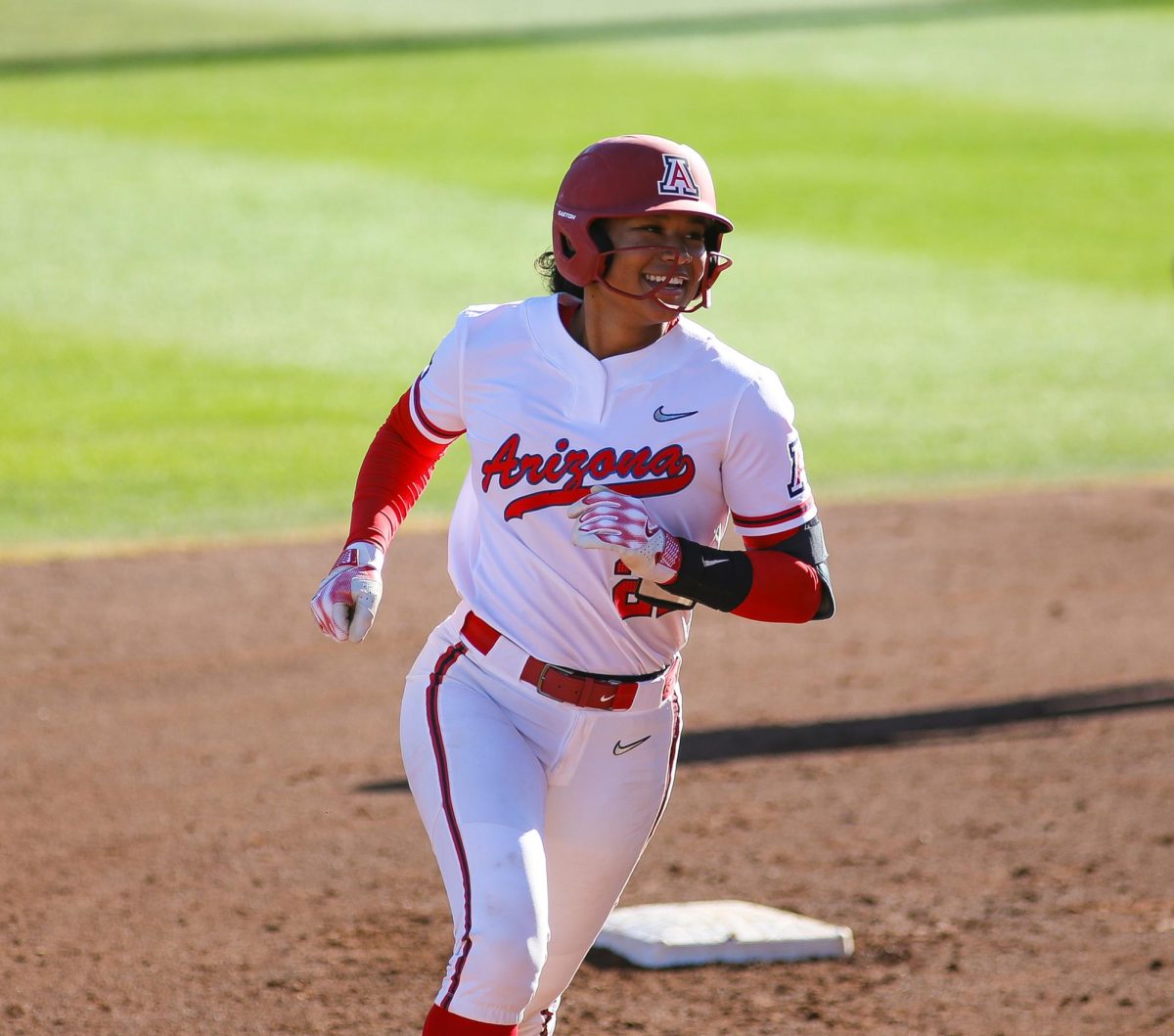The Arizona Wildcats softball team is on the cusp of history. At 41-1, they are just five games away from breaking their own NCAA record for the best 46 game start in history.
The Wildcats lead the nations in home runs with 71, 11 more than second place Louisiana College and have become one of the top offenses in the nation. But in softball, it’s always about the pitching.
Senior ace Danielle O’Toole is 21-1 with a .75 ERA, good for sixth in the nation and ranks third in victories. As O’Toole goes, so go the Wildcats. Right?
Not quite, in today’s game, you’re only as good as your number two pitcher.
“Having more than one pitcher is the new game of softball,” said Arizona’s number two pitcher Taylor McQuillin. “You don’t win much without more than one these days.”
McQuillin is actually slightly better than O’Toole this season. The sophomore is 13-0 with a miniscule .63 ERA that’s good for fourth in the nation. For as good as O’Toole is, she needs a steady sidekick.
“I think that’s close to being right,” O’Toole said when asked if the difference between good teams and great teams is their number two pitchers. “Not a lot of schools have a good number two, that’s why we’re special. I don’t think a lot of teams have a good number two and I think we have probably the best one.”
The Wildcats have already won as many games this season, 40, as they did all of last season. While the lineup has been a major improvement, McQuillin’s statistics tell the story of Arizona’s rise back to national prominence.
After going 12-8 with a 3.17 ERA last season the elevation of McQuillin’s game is right in line with the Wildcats rise up the national polls.
Junior catcher Robyn Porter has appeared in just 17 games so during her career at Arizona, but says she works with O’Toole and McQuillin “as much or more” than anybody in the bullpen. If anyone can determine the difference between McQuillin from last year to this one, it’s Porter.
“She’s become a lot more consistent,” Porter said. “Last year she had great movement but she couldn’t always pinpoint it so this year she’s become more consistent and reliable with herself.”
When the 2004 Arizona Wildcats set the NCAA record starting 45-1, they relied heavily on pitcher Alicia Howell. Howell started 44 games and tossed 293.2 innings, Wendy Allen had eight starts and threw 62.1 innings, both good for second on the team.
“It wasn’t too long ago where teams would still only have one pitcher and they would be going out there winning the world series,” McQuillin said. “Especially the past couple of years, [teams around the country] started realizing ‘hey, you’re going to need more than one pitcher to win these games.’ The game’s only getting harder.”
It’s getting harder because hitters are getting better and the game has become more advanced.
“You can’t just trust one workhorse to get you through every single game of the season,” Porter said. “It’s changed with film and preparation. We know pitchers and we can practice [for] them ahead of time and know exactly how they’re going to pitch to us [as well].”
With the advances in film preparation, something Arizona head coach Mike Candrea has mentioned as a recent change in softball numerous times, hitters have become smarter. The NCAA has given them a little help as well.
“It’s not only that hitters are getting better, it’s the NCAA has changed our strike zone,” O’Toole said. “We have to kind of serve it up and hope for a swing and miss. They’ve kind of forced us to be in this box. That’s why hitters are getting better, the game is different.”

The NCAA has tightened up the strike zone in recent years and it has created a tough environment for pitchers. Along with technological advances, pitchers constantly have to change their game.
“Reinventing is a weekly thing,” O’Toole said. “You come out playing your game and then you have to know what [opposing teams] did, know what they’re looking for. That third day is really hard.”
“A lot of it stems from kids that are coming to college and aren’t used to throwing a lot of innings because they’re playing in showcases, it’s the culmination of travel ball,” Candrea said.
“If you had someone special, special meaning that they have to have the physical skills but they also have to have the stamina to throw a lot of innings, you could still do it,” Candrea said. “I think you’re going to see as we get in to [the] postseason that as you go on teams rely more on horse.”
“[O’Toole] comes out and throws her first no-hitter [against Washington] and she comes out the next day that she started and said ‘I have to completely reinvent myself today.’ It’s a really hard thing for pitchers to do.”
Follow Christopher Deak on Twitter



